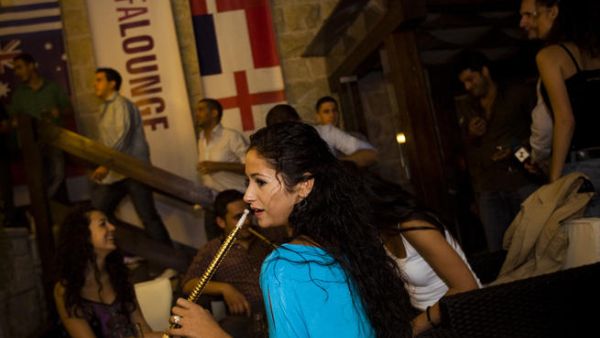While Paris’ Left Bank is famous for its fine restaurants and bustling cafes, Palestine’s West Bank is not. But that might be about to change.
The hilly city of Ramallah, which lies just to the north of Jerusalem, has undergone a massive boom in recent years on the back of Western donor support, with new smart eateries and bars mushrooming alongside a plethora of pristine office blocks.
Latest data says Ramallah and the adjacent town of Al Bireh, that it has engulfed, have more than 120 coffee shops and 300 restaurants, with 50 new diners opening in 2010 alone.
“When I started, I was competing with three to four other places, now I compete with many,” said Peter Nasir, who turned an abandoned family house into a bustling restaurant in 2007, drawing about 150 customers a day.
“Restaurants are good business,” said Nasir, whose Azure eaterie is near the city centre.
Until recently a small town in the occupied West Bank, Ramallah has seen its population double in the last decade to about 100,000, and plays host to a growing army of NGO workers, diplomats and an increasingly wealthy, middle-class elite.
“These people need food, need to sit down and talk, need to hold receptions. This explains the increase in restaurants,” said Mohammad Amin, head of Ramallah Chamber of Commerce.
Palestinians dream of establishing a capital for their longed-desired independent state in nearby Jerusalem.
But that city is fully controlled by Israel and with no Middle East peace deal, Ramallah has risen to the fore.
The Palestinian Authority set up camp here when it was created in 1994 and is rapidly building an array of state institutions in the city in readiness for a widely expected unilateral push for independence later this year.
Not everyone is happy with the boom in the service sector, and some longtime businesses say there are not enough clients to go around.
“Ramallah is over-saturated with restaurants,” said Nidal Hassan, who opened his establishment Stones in 1999, a year before the outbreak of the second Intifada, or uprising, against the Israeli occupation that nearly destroyed the local economy.
Stones survived that dark period, only to suffer in the upturn, says Hassan, with his income plunging 40 per cent in 2010 because of the “mad increase” in competition.
“There are new restaurants but we have the same number of restaurant goers. People should think twice where to invest their money,” he added.
But other investors see a rosy future for restaurants in a place which offers little competition when it comes to other forms of entertainment, with only one cinema to boast of and no public parks for picnics.
“This is a small country. We have no places for fun and entertainment besides the restaurants,” said Jaber Khader, who opened his own place - Karaz - last month.








